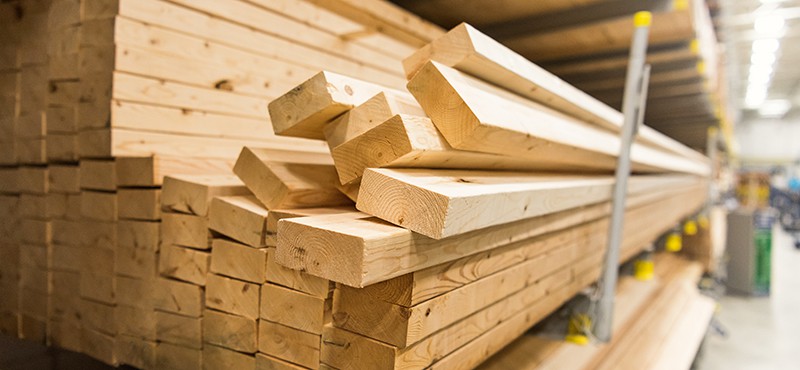
Building or renovating a home is one of the biggest investments many of us will make in our lifetimes. When undertaking such a project, it’s easy to focus on initial costs rather than the bigger picture. However, the materials you choose play a significant role in the longevity, efficiency, and comfort of your home. Prioritizing quality over cutting costs ensures that your home will not only stand the test of time but also remain a place of comfort and pride.
Here’s why quality matters and how it impacts durability, comfort, and long-term value.
Durability That Withstands the Elements
A well-built home starts with durable materials that can withstand natural wear and tear. From roofing to wall panels to insulation, every element plays a role in ensuring your home holds up against daily stresses like weather changes, temperature fluctuations, and prolonged use.
High-quality materials are designed to endure these factors without compromising their performance. For example, premium-grade roofing materials resist corrosion, fading, and cracking better than cheaper alternatives. Metal roofs, when installed correctly and with accessories like foam closure strips for metal roof systems, can provide long-lasting protection from the elements. By choosing durable materials upfront, you reduce the risk of costly repairs or replacements down the line.
Choosing the Right Structural Materials
The backbone of any home depends on the strength of its structural materials. Select materials that offer resilience, such as reinforced concrete, treated wood, or engineered steel, to ensure the foundation and framework can handle long-term stress. While the upfront expense may appear significant, the added peace of mind in knowing your home can face years of storms, winds, and time itself is invaluable.
Comfort for Everyday Living
Your home is more than just a building; it’s a place where you should feel relaxed, at ease, and comfortable. High-quality materials don’t just enhance the physical structure of your house—they contribute to its livability.
Better Insulation and Energy Efficiency
Investing in excellent insulation materials can make a huge difference in maintaining consistent indoor temperatures. Quality insulation reduces heat transfer, allowing your home to stay warm during the winter and cool during the summer. Similarly, energy-efficient windows and doors can prevent heat loss and air leakage. Not only do these upgrades improve comfort, but they also save you money on energy bills over time.
Poor-quality materials often lead to drafts, uneven heating, or even high levels of noise from the outside environment. By prioritizing quality in your construction or renovations, you create a space that feels cozy and quiet, even during extreme weather.
The Role of Flooring and Walls
Beyond just temperature control, comfort extends to the materials you walk on and the walls that surround you. High-quality flooring is less prone to warping, cracking, or fading, giving you smooth, even surfaces that last for years. This is especially important in areas of high foot traffic, like hallways or kitchens. Additionally, durable walls made from superior materials not only look better but also provide better soundproofing for a truly restful environment.
Long-Term Value for Your Investment
A home is a long-term investment, and the decisions you make during construction or renovation can impact its value for years to come. High-quality materials not only increase your home’s marketability but also reduce maintenance costs over time, improving its overall value.
Avoiding Frequent Repairs
Using inferior materials may save money initially, but the hidden costs of frequent repairs add up quickly. For example, low-grade roofing might start to leak after a few years, while high-quality materials can last decades with proper care. Similarly, walls, flooring, and fixtures made from reliable materials require fewer replacements, ultimately saving time and effort.
Increased Resale Potential
If you plan to sell your home at any point, buyers will notice the difference that quality materials make. Homes built with care and premium components are more appealing to potential buyers, as they offer assurances of durability and reduced upkeep. Quality materials are often seen as a sign of attention to detail and can even lead to higher appraisal values.
Making Smart Choices
The importance of opting for quality materials cannot be overstated, but making smart choices can sometimes feel overwhelming. To start, outline your budget and prioritize key areas where quality is non-negotiable, such as the roof, insulation, and structural elements. Look for materials that offer warranties, certifications, or a reputation for durability, as these often indicate they have been tested for performance.
Remember, small details matter, too. For instance, ensuring that all components, like seals and fasteners, are of high quality is just as important as selecting robust main materials. Thoughtful decisions today can prevent future headaches and protect your home for years to come.
A durable, comfortable, and valuable home is built on the foundation of quality materials. While cutting costs on materials may seem attractive initially, it often leads to compromised results, higher upkeep, and reduced satisfaction in the long run. Instead, focus on making thoughtful investments that will benefit you and your home for decades. From energy efficiency to structural integrity, choosing quality ensures that your home truly stands the test of time.
